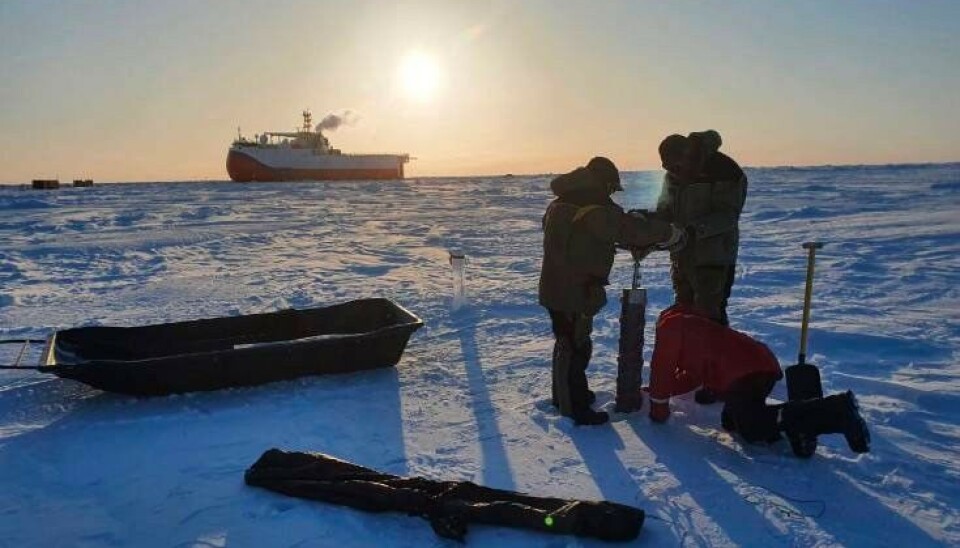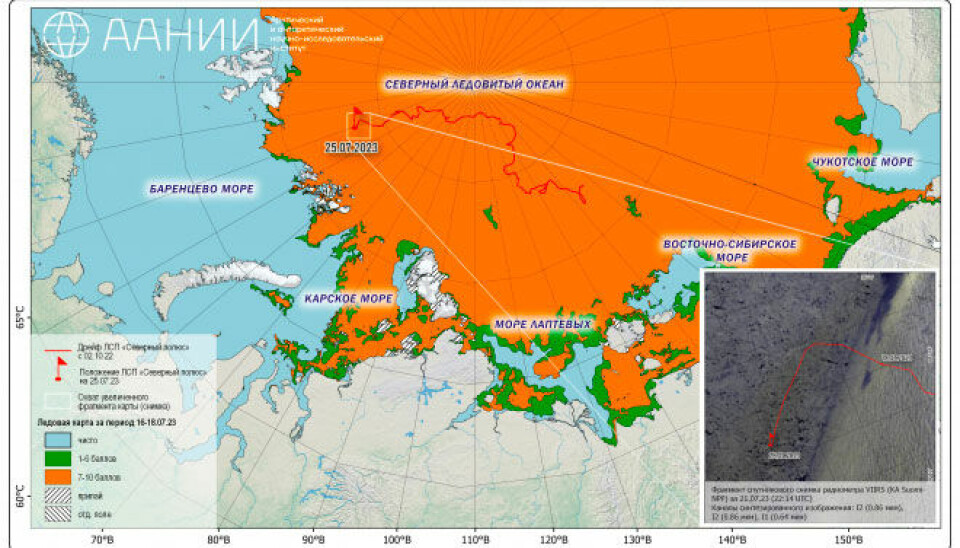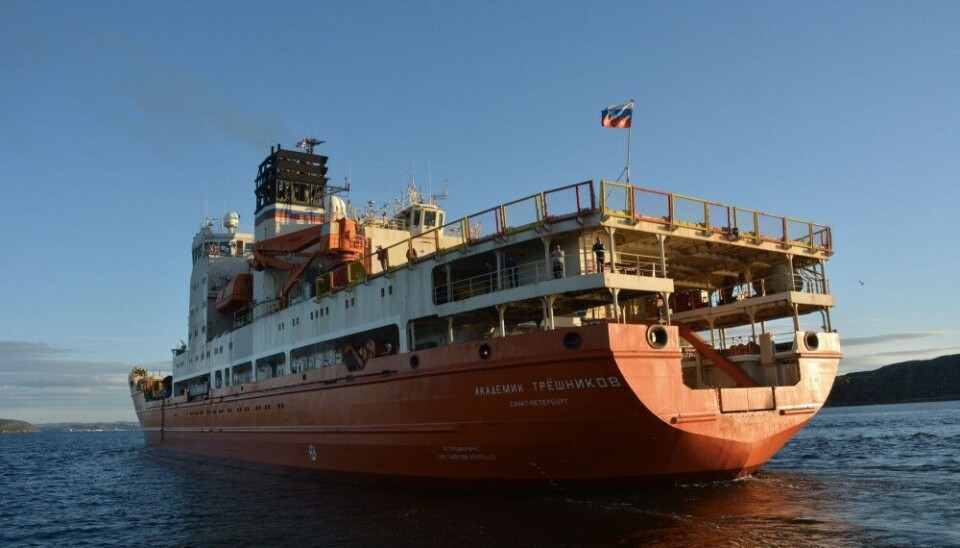
Ship sails 6,000 km to deliver goods and new crew to Russia's North Pole platform
Research vessel Akademik Tryoshnikov is on its way from St.Petersburg to waters near the North Pole where it will re-equip the "Severny Polyus-41."
The Akademik Tryoshnikov set out from St.Petersburg on the 27th of July and was on the 2nd of August sailing through the Norwegian Sea. It is due to arrive in the waters north of the Franz Josef Land on the 4th of August. The voyage from St.Petersburg to the site of the Severny Polyus-41 is estimated to be about 6,000 km long.
Onboard the research vessel are five researchers and 16 sailors that are to replace the current crew of the Severny Polyus-41, the Russian research station that has been drifting across the Arctic since early October 2022.

The ice drift of the Severny Polyus-41 started north of the New Siberian Islands and the station is now located north of the archipelagos of Franz Josef Land and Svalbard at 83,5° N.
The unique vessel is built to be able to autonomously drift through Arctic sea-ice for up to two years. The current expedition was originally planned to end in 2023, but is now likely to stretch into 2024.
It is the maiden expedition of the brand new vessel built at the Admiralty Yard in St.Petersburg.

The Severny Polyus-41 has a ship crew of 16, all of whom will be replaced in the upcoming crew shift. However, the lion’s share of the research team of 34 will remain on board the vessel.
According to the Russian Arctic and Antarctic Research Institute (AARI), the Akademik Tryoshnikov will supply the Severny Polyus-41 also with new equipment, including high-precision technology for analysis of sea water and measuring of sea-ice.
“All of this equipment is produced in Russia,” Director of AARI Aleksandr Makarov assures.
Following its delivery of crew and goods to the research platform, the Akademik Tryoshnikov will proceed to the Laptev Sea where it will take part in the evacuation of researchers and research equipment from the closing Khastyr research station, the institute informs.
The Severny Polyus is operated by the Russian meteorological service Roshydromet. Captain on board is Sergei Nesterov, the experienced sailer with experiences from both Arctic and Antarctica waters, including for foreign tourist cruise companies like Quark Expeditions.
The Severny Polyus is capable of undertaking geological, acoustic, geophysical and marine research under the harshest of Arctic conditions. Even in temperatures down to minus 50°C it is believed to be able to provide comfortable living and working conditions for researchers and crew.
On board are 15 labs where researchers can work year-round.
The research platform replaces Russia’s Arctic expeditions based on ice floes organised since the 1930s. The quickly vanishing Arctic sea-ice has made it increasingly hard to organise the expeditions and last real ice station, the “North Pole-40”, was held in the winter of 2012.
Albeit built for research purposes, the vessel could ultimately also be applied by the Russian military. The country’s new Marine Doctrine includes a high stress on use of civilian ships and infrastructure for military purposes. That could include not only trawler and icebreakers, but also the Severniy Polus.















